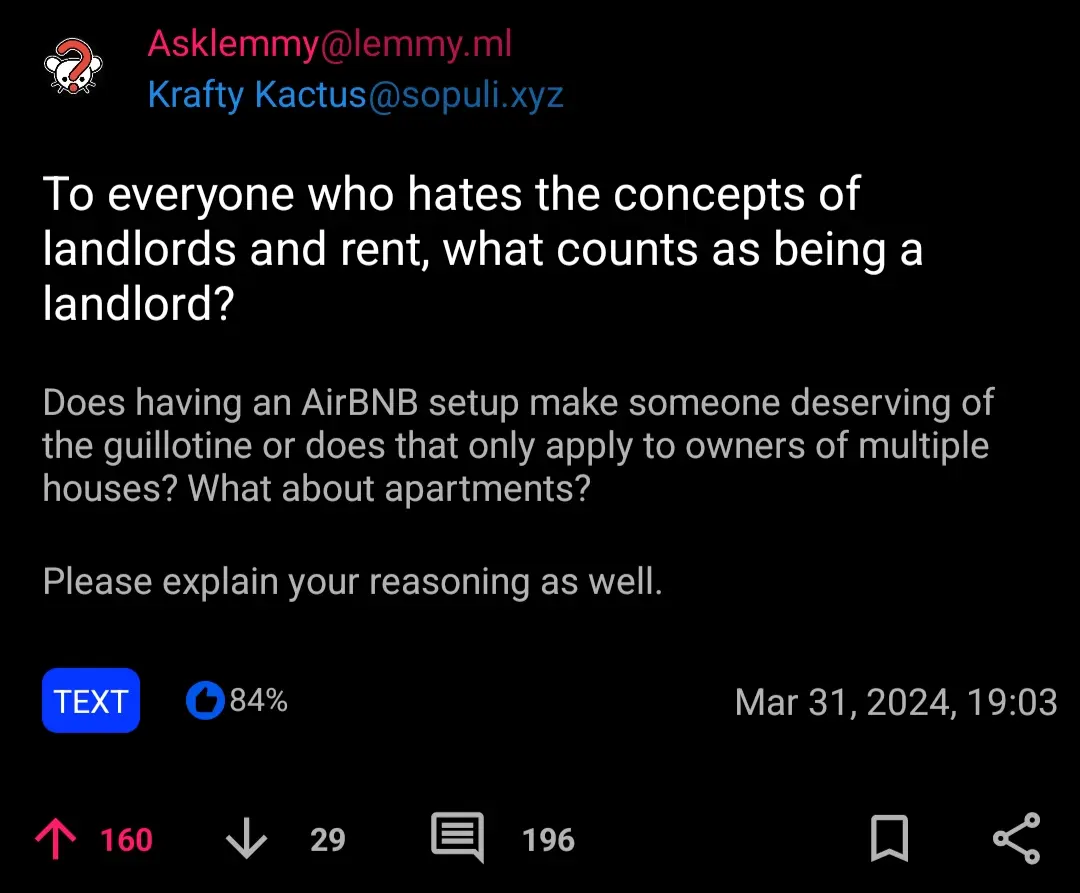I don't think private landlords are really that bad. Renting out your dead nan's house or buying a duplex to letting the other half is fine as long as you charge appropriate rent and treat your tenants well. In an ideal world, houses would not be investments but rather something that everyone can own and live in, but we're not going to get that by going cold turkey as some people are suggesting. Reform is slow and boring but usually works out better than trying to tear everything down at once.
The real problem is companies buying up an absurd number of units and hoarding the available housing stock while squeezing tenants and generally just being miserable landlords.
